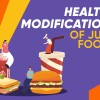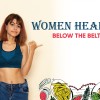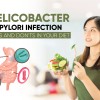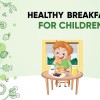
ANTI-ACNE DIET
Just a day before the party night, you wake up with a ‘bump’ on your face. Out of nowhere, it appears and makes your nerves dread. A perfect regular skin is now irregular with that bump. No matter how you look or what you wear, this bump is the centre of attraction in the party.
Let’s talk about acne!
Acne is a condition in which the skin surface develops various kinds of bumps. These could be whiteheads, blackheads or pimples. These acne are most common in teenagers, suggesting its cause to be hormonal changes following puberty.
Acne has its own variety!
Acne varies in its severity. In some, it is too stubborn too leave and one acne follows the other. While in others, they are easy to fade away. It may leave its no trace behind or it may leave the face scarred. A few need no treatment, some need medicines prescribed by a dermatologist while the others may treat it with over-the-counter drugs.
What causes this ‘tiny’ terror!?
Our skin is covered by small holes, called pores. These pores are connect with various glands located under the skin such as sebaceous glands which produce oil/sebum. These glands, via a follicle, send this oil to the pores. Acne occurs when the pores get clogged with oil, dead skin cells or infection with bacteria etc.
Is the reason only hormonal changes or diet too?
When talking about acne, diet plays a crucial role in this.
Danger foods for skin:
Trigger with simple sugar
The foods which have higher glycemic index, which cause a sudden spike in blood glucose levels, are a danger for the skin. This is because rise in blood sugars releases the hormone insulin. This hormones causes increased secretion of oils from sebaceous glands. This causes acne. It includes food such as refined carbohydrates, sugar, glucose, jaggery, white bread, pasta etc.
Fate of chocolate
Not all individuals are prone to acne with chocolate consumption. But some studies have proven that those with a history of acne vulgaris develop acne again by consuming chocolate. factor-1 (IGF-1) in the blood, post milk consumption. This causes acne.
Trap of trans fat
Fat can be useful too if it’s good, but bad too! It all depends upon type of fat. Saturated fats i.e. fats which are solid at room temperature (butter, ghEe etc.) and trans fat (present in processed foods) are bad for the skin. They also raise the sebum levels in the skin.
The bulky milk
Milk consumption has caused the worsening cases of acne. But this is not to be confused with fat content of the milk. The root cause is not the fat in milk, but the release of Insulin-like Growth
Fat can be useful too if it’s good, but bad too! It all depends upon type of fat. Saturated fats i.e. fats which are solid at room temperature (butter, ghee etc.) and trans fat (present in processed foods) are bad for the skin. They also raise the sebum levels in the skin.
Skin loving foods:
Beauty of complex carbs
Complex carbohydrates are acne friendly. They include whole grains, raw fruits and vegetables, unprocessed food products etc. They slow down the glucose spikes in the blood and are also known to lower inflammation, making the skin less acne-prone.
Wink with zinc
Zinc is an important mineral for skin development and regulation of hormone levels in the body. Dermatologists generally recommend zinc supplements to those with acne as a treatment. Even those with no acne should have a sufficient intake of zinc to avoid the risk of acne. It's sources are lentils, pumpkin seeds, cashew nuts, seafood etc.
Magic of Antioxidants
Antioxidants present in the coloured fruits and vegetables play an important role in decreasing the acne risk by preventing the free radical accumulation in the body, which in turn has damaging effect on the skin.
Omega-3 fats
These are the category of essential fats present in walnuts, flax seeds, fish, egg etc. They reduce the inflammation in the body thereby decreasing the risk of acne.
The final word
It highlights the role of healthy diet in a healthy skin. There is no specific food ‘cure’ present, but diet still has a major part to play. Eat healthy, stay healthy, enjoy glowing skin!






